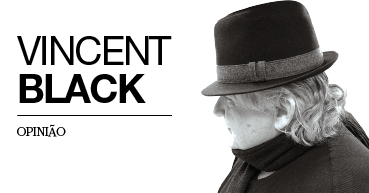Jody Wilson-Raybould wants a minority government and is willing ‘to work with whomever’ is in power
Jody Wilson-Raybould says she hopes the result of next month’s federal election is a minority government, and she’d be “willing to work with whomever forms government.”
“I think the best public policy and laws are created through a minority situation, because people, parties, members of Parliament have to co-operate in order to pass laws,” said the Independent candidate for Vancouver Granville, who was expelled from the Liberal caucus in April during the fallout from the SNC-Lavalin affair.
Wilson-Raybould, who declined the opportunity to join the Green Party in May, told The Current’s Laura Lynch that she feels “a significant level of contentment” running as an Independent.
When asked if she would ever rejoin the Liberals, she prefaced her comments by saying she doesn’t “like to think in hypotheticals,” but said she is “the exact same person” she was when she decided to run for the party prior to the 2015 election.
She noted that even after she was expelled from caucus, she continued to support Liberal votes she agreed with.
“I am a progressive … I haven’t changed who I am,” she said.
“I would support progressive pieces of legislation where they present themselves,” she said, using the example of climate change as an issue “that is not confined to the Conservatives, or to the Liberals, or any political party.”
In February, Wilson-Raybould testified before the Commons justice committee that the Prime Minister’s Office tried to pressure her — while she was justice minister and attorney general — to spare Quebec engineering firm SNC-Lavalin a criminal prosecution on fraud and corruption charges, but she refused.
Prime Minister Justin Trudeau denied the claim and eventually expelled Wilson-Raybould from caucus, saying her criticism of the government had cost her the confidence of fellow MPs.
In August, Ethics Commissioner Mario Dion found that Trudeau had violated the Conflict of Interest Act by trying to influence Wilson-Raybould, directly or through others under his direction. Trudeau accepted responsibility for the report’s findings, but did not apologize.
“I still wish that the prime minister would have acknowledged that something went seriously wrong and took action to ensure that it never happens again,” Wilson-Raybould told Lynch.
She was one of several star candidates recruited by Trudeau for the 2015 election, and given high-profile cabinet posts when the Liberals took power.
“I ultimately agreed to run as a member of Parliament because I saw that we had shared the same vision for the country, and valued the same principles of equality and inclusion, and advancing social justice issues,” she said.
But, she continued, “I’m not one to talk about my personal relationship with the leader of the Liberal Party. I think that is a story that I will tell on another day.”
Wilson-Raybould said voters have not brought up the SNC-Lavalin affair directly during her canvassing, but she is having discussions “about the nature of our democracy … and having politicians that will stand up for what is right.”
She says Canadian politics “has gotten to the place where people’s voices are being overpowered by the dictates and the confines of parties.”
“Members of Parliament are answerable to their leader or to the prime minister, and in that case, to unelected people that exist within the Prime Minister’s Office,” she said.
“I believe the prime minister and leaders should be answerable to members of Parliament, who are in turn answerable to constituents — that’s the way that representative democracy should work.”
Ottawa can learn from Indigenous politics
On Friday, Wilson-Raybould released a collection of speeches and other writings on reconciliation, From Where I Stand: Rebuilding Indigenous Nations for a Stronger Canada.
She argued that Canada needs to recognize the rights of Indigenous communities, and enable them to “rebuild their institutions of government, to determine who their citizens are, how they elect their governing body, and put in place their constitutions, if they so choose.”
She said these bodies need to develop in partnership with federal and provincial governments — and that Ottawa could learn a lot from them.
“I come from an Indigenous background where we value collaboration and consensus-based decision-making,” she said, before acknowledging that the way federal politics works in Ottawa is not going to change overnight.
“But I think that there can be lessons learned from my culture and its governing systems that have survived for millennia.”







Redes Sociais - Comentários